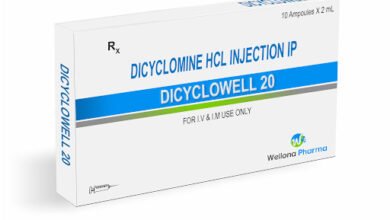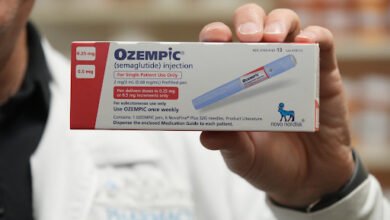Healthcare Costs & The Price of Low Financial Health Literacy

Do your eyes glaze over when you get a notice from your health insurance company? Do you panic when you get a medical bill or an explanation of benefits (you know, the thing that says, “This is not a bill”)? Would you be lost if you had to navigate the costs of a new or ongoing medical diagnosis? If so, like millions of Americans, you may benefit from improving your financial health literacy skills.
What is financial health literacy and why does it matter?
Financial health literacy is defined as the ability to find, understand and use financial health information. Basically, can you make sense of your healthcare costs and use that understanding to make sound decisions about your health and healthcare?
For many Americans, the answer is no.
Several studies have found that only a small minority of people can correctly define key health insurance terms that relate to their costs. Perhaps more concerning, studies also show that people tend to overestimate their literacy regarding health insurance concepts.
“There are things I wish we were all taught in high school about finances and insurance that would allow us to be better prepared,” said attorney Monica Fawzy Bryant, chief operating officer at Triage Cancer, a national nonprofit organization that provides one-on-one help and free education for people diagnosed with cancer and their caregivers. “However, that’s typically not the case.”
Financial health literacy matters for two main reasons. First, Americans are paying more out-of-pocket for their healthcare and health insurance than ever before.
According to the Kaiser Family Foundation (KFF), people who get their health insurance through a job pay 47% more in employee health insurance contributions compared with 10 years ago. Not including consumers’ share of health insurance premiums, out-of-pocket costs have increased steadily since 1970, according to the Peterson-KFF Health System Tracker. In 2019, out-of-pocket spending per person reached an average of nearly $1,250 before dropping to $1,181 in 2020 when many people avoided seeking non-urgent care, and many health insurers temporarily waived copayments (often referred to as copays) because of the Covid-19 pandemic.
As much of a burden as these costs can be, they often pale in comparison to the out-of-pocket costs women can face when they have a serious condition, such as cancer. According to the National Cancer Institute, the average cost of a cancer diagnosis is more than $40,000 for initial care and nearly $110,000 in the last year of life. For women without great health insurance coverage, a cancer diagnosis can translate into $10,000s in out-of-pocket costs.
Second, lack of financial health literacy comes with a price. People with lower financial health literacy tend to get less value from the money they spend on healthcare.
Research shows that when people don’t understand their health benefits, they’re more likely to avoid seeking healthcare. In a 2018 study, 3 out of 10 people surveyed had avoided care because of cost. The higher the respondent’s health insurance literacy, the lower the likelihood that they would delay or avoid care. When people avoid care they need, health problems can get worse and more expensive to treat down the road.
Uncertainty about costs alone is enough to steer people away from using healthcare services. One recent survey showed that almost half (44%) of consumers reported having avoided seeking healthcare services because they were not sure what those services would cost.
Lack of financial health literacy can also take a direct financial toll. A 2017 Urban Institute study showed that people with greater knowledge about healthcare finances were less likely to have past-due medical debt.
How to navigate healthcare finances
If you’re newly diagnosed or living with a complex health condition, you’ll likely face a wide range of costs, from healthcare costs such as health insurance and out-of-pocket expenses, to related expenses for supportive services, alternate therapies, transportation and childcare.
According to Bryant, managing healthcare finances starts with good health insurance.
“The most effective way to avoid high medical bills is to make sure that they have adequate health insurance coverage that covers their healthcare providers and your prescription drugs,” she said. “But even if someone has the best insurance possible, there will still be bills.”
Getting great health insurance isn’t always possible, though. Comprehensive health coverage can be pricey, even if you get it through an employer. And, not everyone has a job with health benefits. Plans sold on the health insurance marketplace (during open enrollment or during a special enrollment period if you qualify) provide another option. These plans can seem expensive, but nearly 3 out of 4 people enrolled in marketplace plans get subsidies, bringing down their insurance costs, and millions more may be eligible for subsidized insurance this way.
And, even if you do have good health insurance, that’s not enough. Understanding how to use it and get the benefits you’re entitled to is also important. If you find yourself needing healthcare services, it’s worth learning the key terms (for example, deductible, copayments or copays and coinsurance) and in understanding the specific benefits in your coverage.
No matter what’s covered in your plan, Bryant said it’s important to know that even if insurance denies a claim, that may not be the end of the story.
“If someone has received a denial from their health insurance company, know that they do not have to take no for an answer,” she said. “Many people assume that their insurance company has made a correct decision, accept the denial of coverage, and then try to find a way to pay for the medical care themselves. However, if an insurance company denies coverage, you have the right to appeal the decision. Those who don’t accept the denial and file an appeal, actually win and get coverage for the care prescribed by their healthcare team up to 60% of the time!”
Bryant also said that other factors in your job are important as well. Will you have to leave your job or reduce your hours? Do you have access to disability insurance or other benefits to offset lost wages if so?
Perhaps most importantly, do not feel you have to navigate a diagnosis alone. There are resources available to support your healthcare financial understanding. For example, Triage Cancer offers a range of financial management tools, including a Health Insurance Comparison Worksheet and a Medical Bills Tracking Form. And these tools are useful for health conditions other than cancer, as well.
“Cancer is expensive, and navigating finances after a cancer diagnosis can be overwhelming,” Bryant said. “It is crucial for women to not be embarrassed to talk about finances with their healthcare team. Additionally, knowledge is power. Knowing some key tips on how to manage medical bills can help women avoid unnecessary expenses.”
This resource was created with support from Pfizer.
From Your Site Articles
Related Articles Around the Web
Source link
#Healthcare #Costs #Price #Financial #Health #Literacy



